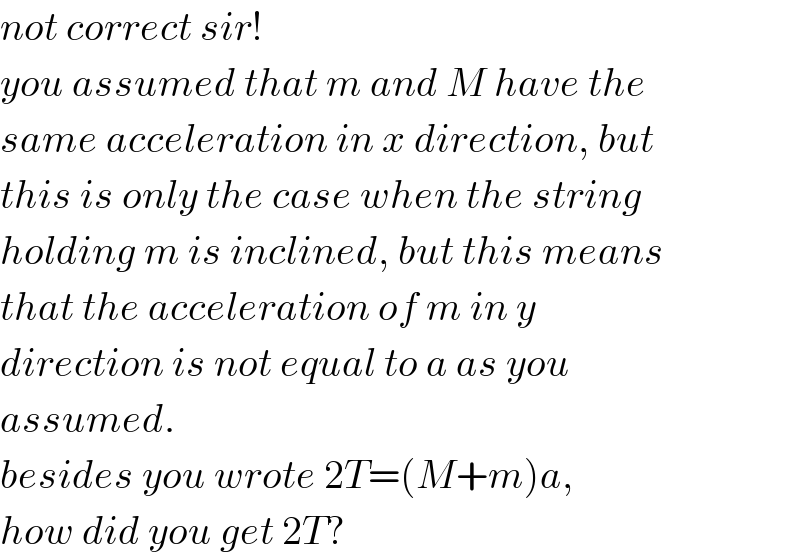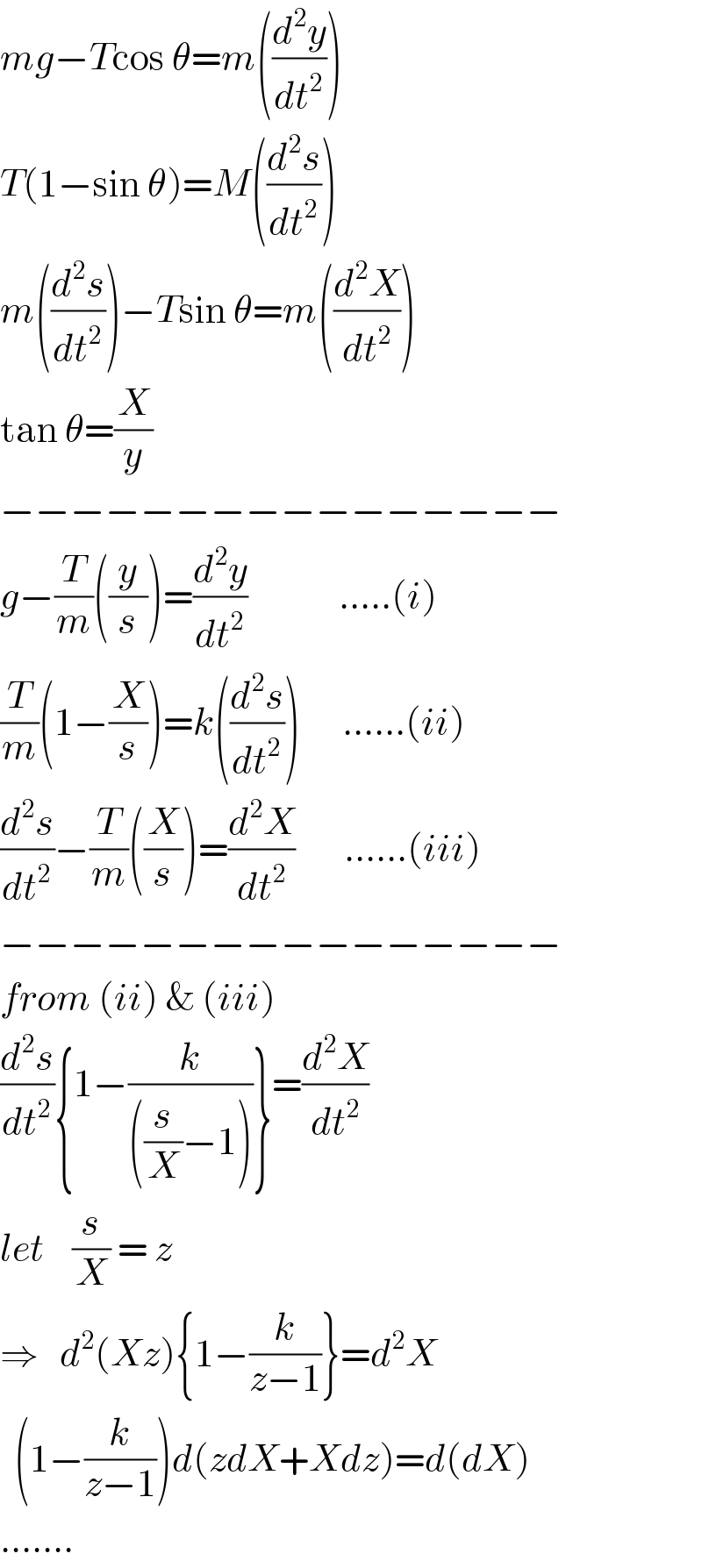
Question and Answers Forum
Question Number 109268 by mr W last updated on 22/Aug/20

Commented by mr W last updated on 22/Aug/20

Commented by Dwaipayan Shikari last updated on 22/Aug/20

Commented by mr W last updated on 22/Aug/20

Commented by mr W last updated on 22/Aug/20

Commented by Dwaipayan Shikari last updated on 22/Aug/20

Answered by mr W last updated on 22/Aug/20

Commented by ajfour last updated on 22/Aug/20
![T(1−sin θ)=M((d^2 s/dt^2 )) mgcos θ+m((d^2 s/dt^2 ))sin θ−T=m[(d^2 s/dt^2 )−R((dθ/dt))^2 ] m((d^2 s/dt^2 ))cos θ−mgsin θ = ms((d^2 θ/dt^2 )) −−−−−−−−−−−−−−−−−− let (M/m)=k ⇒ gcos θ+((d^2 s/dt^2 ))sin θ−(k/((1−sin θ)))((d^2 s/dt^2 )) = (d^2 s/dt^2 )−R((dθ/dt))^2 & (d^2 s/dt^2 )cos θ−gsin θ=s((d^2 θ/dt^2 )) .....................................................](Q109314.png)
Commented by mr W last updated on 22/Aug/20

Commented by ajfour last updated on 22/Aug/20

